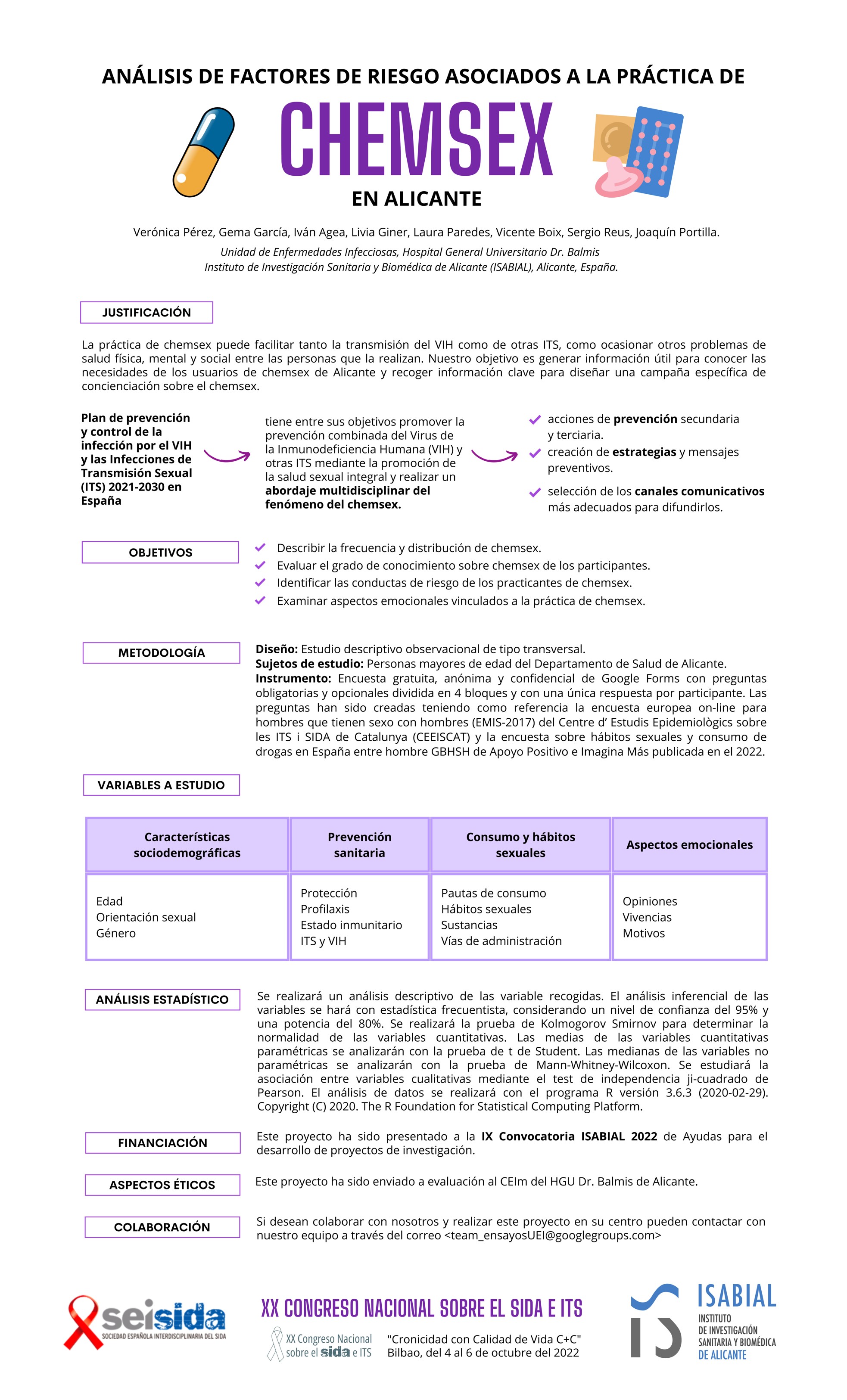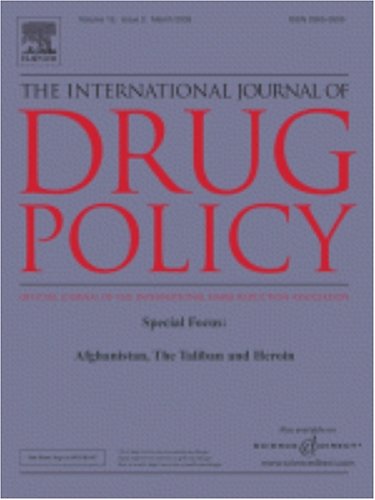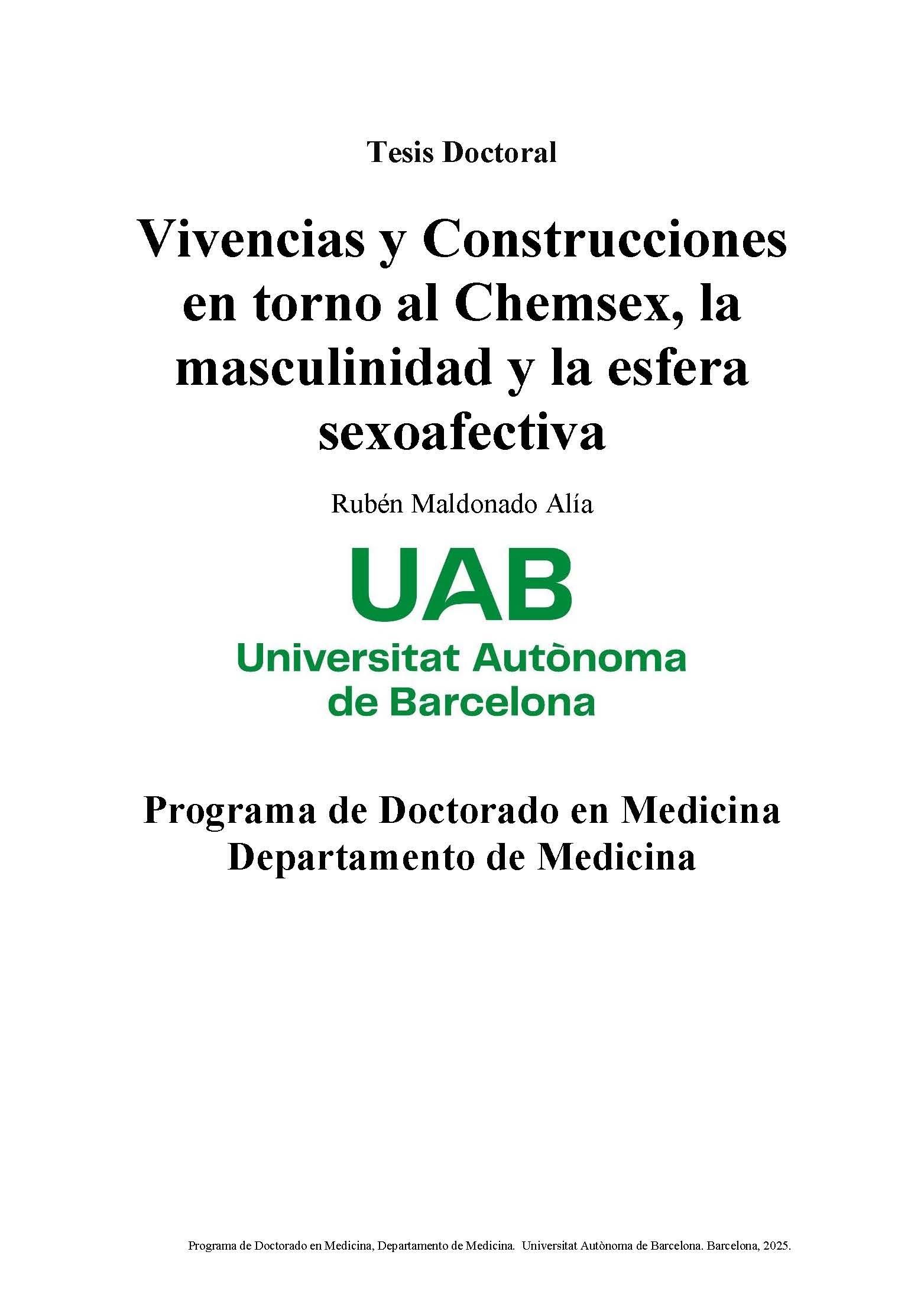Resumen
Chemsex, a new risky sexual behavior involving participation in sexual relations under
the influence of drugs, has shown a significantly increased prevalence in recent years. This fact
entails a serious public health issue, especially when Chemsex is practiced by individuals with an
HIV (Human Immunodeficiency Virus) diagnosis. Hence, analyzing the characteristics of Chemsex
practices, associated sexual practices and the health outcomes of individuals who participate in
Chemsex, is extremely important. The main aim of the present study is to analyze the prevalence and
characteristics of the practice of Chemsex in a sample of 101 men with HIV who have sex with men
who attended the Department of Infectious Diseases of the General University Hospital of Alicante
(Spain). Furthermore, the association between Chemsex and Health-Related Quality of Life (HRQoL)
was also assessed. Chemsex and sexual practices were evaluated by employing a questionnaire
applied on an ad hoc basis. HRQoL was assessed by employing the Medical Outcomes Study HIV
Health Survey (MOS-HIV). In total, 40.6% of the participants had practiced Chemsex during the
last year. When sexual practices were compared between those individuals who practiced Chemsex
and those who did not, the former presented a higher level of risky sexual behaviors, especially
with occasional and multiple sexual partners. Regarding HRQoL, those individuals who practiced
Chemsex exhibited a poorer HRQoL in the majority of domains, especially those participants who
practiced it with a higher intensity. The present study points out the high prevalence of Chemsex
practice between men with HIV who have sex with men in Spain. Moreover, this study highlights the
negative effects of Chemsex on HRQoL, probably due to the mixed effects of higher levels of risky
sexual practices and the consequences of drug consumption.






